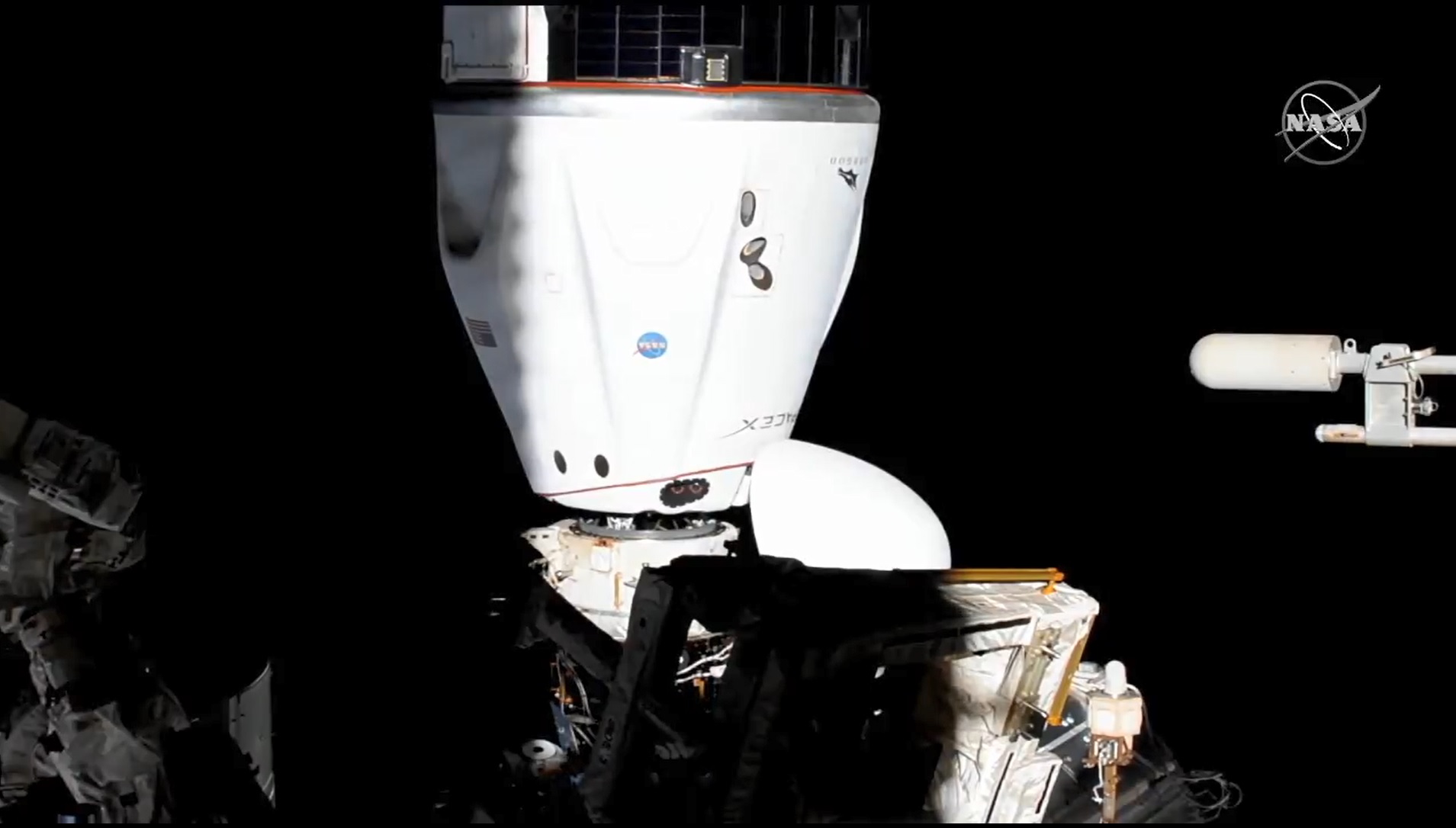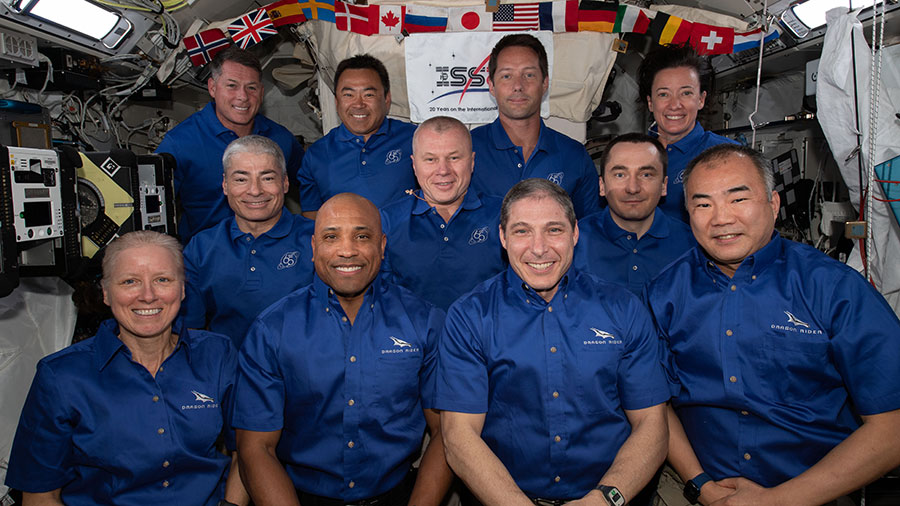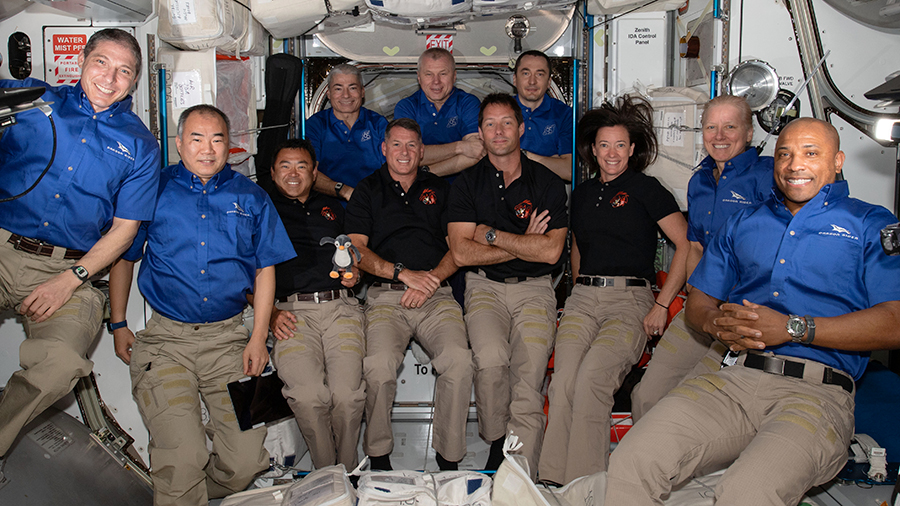
A pair of astronauts aboard the International Space Station studied advanced piloting controls using virtual reality today. In the meantime, four Expedition 66 crewmates are turning their attention to returning to Earth this month.
An experiment sponsored by ESA (European Space Agency) is using virtual reality in the space environment to help engineers optimize workstations and interfaces for controlling future space robots and spacecraft. Commander Thomas Pesquet of ESA set up the Pilote experiment this morning for NASA Flight Engineer Megan McArthur who wore the virtual reality headset. She worked in the Columbus laboratory module wearing the VR goggles using a haptic controller to pilot and capture simulated spacecraft in a video game-like environment.
Flight Engineers Shane Kimbrough of NASA and Akihiko Hoshide of the Japan Aerospace Exploration Agency (JAXA) worked throughout Friday on a variety of station hardware. Kimbrough worked in the in the U.S. Destiny laboratory module servicing thermal gear as Hoshide checked out lights and orbital plumbing systems in the Kibo laboratory module.
Kimbrough will also lead McArthur, Pesquet and Hoshide back to Earth inside the SpaceX Crew Dragon Endeavour. The quartet have been packing Endeavour with personal items and station hardware, as well as training on a computer for the ride back home. The four commercial crew astronauts will undock from the Harmony module’s space-facing port and splashdown off the coast of Florida ending a station mission that began in April.
The orbiting lab’s other three crewmates, NASA Flight Engineer Mark Vande Hei and Roscosmos cosmonauts Pyotr Dubrov and Anton Shkaplerov, will continue their stay in space until spring next year.
Vande Hei trained throughout Friday for his role when he will be monitoring the Crew Dragon’s upcoming undocking and departure. He also checked U.S. toilet sensors before ending his day setting up hardware to collect biological samples. Shkaplerov continued cargo transfers inside the ISS Progress 79 resupply ship then photographed the Photobioreactor hybrid life support system experiment for inspection. Dubrov explored ways to maintain safe, sterile conditions when conducting microgravity biology research for the Aseptic study.









